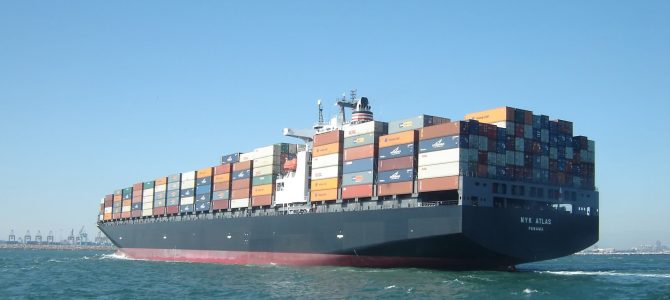
Last month senators Marco Rubio and Tom Cotton introduced a bill that would punish Chinese and pro-Beijing officials for suppressing freedoms in Hong Kong. Under the Hong Kong Human Rights and Democracy Act, officials implicated in the abduction or detention of Hong Kong journalists would have their U.S.-based assets frozen and would be barred from entering the United States.
The act would provide Hong Kong’s struggling democracy movement with international support. Ties between China and Hong Kong reached a new low earlier this month, when China barred two elected separatist politicians from taking office, provoking an outcry from pro-independence factions. Such meddling by Beijing could undermine Hong Kong’s perceived judicial independence, crucial for attracting international investment. By passing the bill, the United States could help protect Hong Kong’s democracy efforts from Chinese intrusion and safeguard its important place in international trade and finance.
While the act could reduce some of the fallout stemming from Trump’s foreign policy musings, the measure could very well have implications far beyond Hong Kong. As U.S. allies worry over President-elect Donald Trump’s suggestions he’s open to tearing up international agreements and withdrawing U.S. forces abroad, congressional acts such as the Rubio and Cotton bill could send a strong message to the world that the United States will stand by its commitments.
Trump’s Got Strong Words for Asian Countries
Trump has consistently denounced America’s international deals of every kind, be they economic, environmental, or linked to nuclear non-proliferation. On November 22, Trump announced he would withdraw the United States from the Trans-Pacific Partnership (TPP) on his first day in office. Many are concerned this would spell the decline of U.S. dominance in the Asia-Pacific region.
Moreover, during his campaign, Trump said he might not come to the defense of U.S. allies in Asia, threatening to withdraw troops from South Korea and Japan if they don’t pay more for the U.S. military’s presence. He even went as far as to suggest that both nations acquire nuclear weapons to deter Chinese or North Korean aggression in the absence of U.S. support.
These actions would be grave strategic mistakes that contradict core conservative principles of internationalism and free trade. This isn’t to say that the Trump White House should micromanage every conflict and every crisis in the world. Regime change and nation-building, relics of the Bush era, are clearly not the way forward. But neither should Trump take Obama’s woeful “leading from behind” mantra and push it into isolationism.
A strategic vision that addresses the multifaceted foreign policy threats facing the nation—from terrorism to organized crime and climate change—cannot be captured on a bumper sticker. Yet it’s likely that, as with Russia in the Middle East under President Obama’s tenure, in the case of a U.S. withdrawal from Asia the resulting power vacuum would quickly be filled by China, the very country Trump has vowed to bring to heel. Worse, there are signs that this is already occurring.
Foreign Countries Pivot from America
Australia, for one, has been hedging its bets by warming up to Beijing. An ABC investigation found that Chinese-linked individuals and firms have donated millions to major Australian political parties in recent years, buying Beijing influence in one of the United States’s strongest traditional allies.
China has increasingly made economic inroads into Australia, with its investments in the country soaring in recent years. The Landbridge Company, owned by a Chinese billionaire, recently purchased parts of an Australian port that is routinely used by U.S. Marines, and appointed former trade minister Andrew Robb as a high-level economic consultant. This sparked more fears of China’s outsized influence over Australian politics.
Malaysia, another U.S. ally, is moving closer to China as well. The two nations have signed a number of bilateral trade deals worth a combined $34 billion. Last December, China signed a $2.3 billion deal with Malaysia to rescue its highly indebted 1MDB state fund. The U.S. Department of Justice has filed lawsuits against that same fund for money laundering, to the chagrin of Malaysian officials.
Malaysia has also been strengthening military ties with China. Armed forces from both countries conducted a joint exercise this month. Malaysia has agreed to purchase ten Littoral Mission Ships from China, its first significant defense deal with its powerful neighbor.
Congress Should Do Its Job of Directing the President
Amid such uncertainties, the Rubio and Cotton bill would be a welcome signal from Congress of the United States’ enduring commitment to Asia and could help to offset China’s expanding influence. U.S. political leaders cannot afford to lose America’s traditional Asian alliances, such as the special relationship with Tokyo or Seoul. The bill would reassure Asian partners of U.S. commitment to democratic norms, in light of Trump’s seeming indifference to human rights and affinity for authoritarian strongmen.
But the Hong Kong initiative also speaks to Congress’s critical role in Trump-era foreign policy. If Trump tries to abrogate agreements as president, the House and Senate will need to act as moderating forces. Room for action is limited, but some legislators have already sent powerful signals. Republican Sen. Rand Paul and member of the Senate Committee on Foreign Relations, for example, voiced serious concerns over John Bolton and Rudy Giuliani as excessively hawkish when Trump was considering them for secretary of State.
Congressional opposition to Trump’s agenda can be found on the other side of the aisle as well. Senate Minority Leader Chuck Schumer has been a strident opponent of President Obama’s nuclear deal with Iran. But as Trump threatens to tear up the accord, Schumer has expressed reservations. He has cautioned that abrogating the deal may be unwise and that he would prefer to wait and see how events unfold.
Trump is also facing opposition in Congress to his views on the North Atlantic Treaty Organization. Trump has described the alliance as obsolete and has threatened not to defend other member states. Fighting back, 20 lawmakers co-sponsored a resolution earlier this year affirming the importance of NATO for the United States and the world. Such instances are encouraging signs that once Trump comes into office, Congress will refine and direct his actions, if not his statements.









